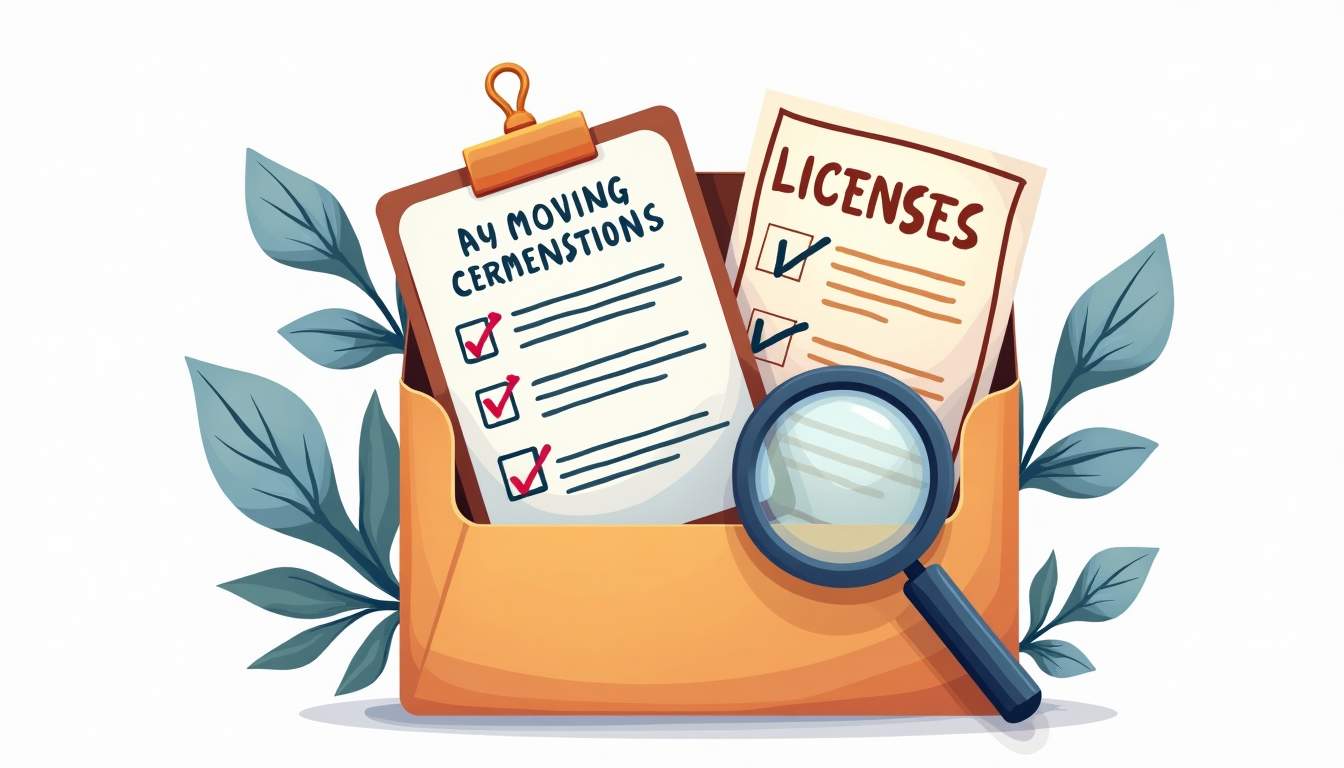Moving to a new home or office can be an exciting yet stressful experience. One of the most crucial steps in ensuring a smooth transition is choosing a trustworthy moving company. Unfortunately, the moving industry has seen a rise in scams, with approximately 13% of movers falling victim to fraudulent practices each year. This makes verifying a moving company’s professional credentials not just important, but essential. With over 36 million Americans moving annually, understanding how to distinguish reliable movers from unreliable ones can save you time, money, and a lot of frustration. This guide will walk you through practical steps and expert advice to help you confidently select a reputable moving company.
Recognizing Legitimate Moving Companies
One of the first indicators of a trustworthy moving company is the presence of a physical address and an office you can visit. According to Schmidt International Relocations, having a physical location demonstrates a company’s commitment to its business and customers. This transparency is a red flag for many scams that operate solely online or via phone without any verifiable location. A reputable company will often encourage potential customers to visit their office, allowing you to ask questions, see their operations, and even meet the staff who will be handling your move.

Additionally, be wary of moving companies that provide estimates over the phone or online without sending a representative to assess the job in person. Katherine Hutt, spokeswoman for the Better Business Bureau, warns, “Be suspicious if an estimate is unusually low or if the moving company provides an estimate over the phone or online without sending a representative to scope out the job.” An in-person evaluation helps ensure the estimate reflects the actual scope of your move and prevents unexpected charges later. Furthermore, an on-site assessment allows the moving company to understand any unique challenges your move may present, such as narrow hallways, staircases, or special items that require extra care, thus providing a more accurate estimate.
Check Licensing and Insurance
Every legitimate moving company should be properly licensed and insured. For interstate moves, movers must have a USDOT number issued by the Federal Motor Carrier Safety Administration (FMCSA). Local movers may be regulated by state or local authorities, so it’s important to verify their credentials accordingly. Insurance protects your belongings during transit, and reputable companies will readily provide proof of coverage. In addition to standard liability coverage, inquire about additional insurance options that may offer more comprehensive protection for high-value items. Understanding the types of coverage available can help you make an informed decision and ensure that your possessions are safeguarded throughout the moving process.
Look for Reviews and Complaints
Online reviews can offer valuable insights into a moving company’s reputation. However, it’s important to look beyond star ratings and read detailed customer experiences. Pay attention to how companies respond to complaints and whether issues are resolved professionally. Websites like the Better Business Bureau and Moving Scam Stories can be excellent resources to identify patterns of complaints or scams. In addition to these platforms, consider checking social media channels where customers often share their experiences in real-time. Engaging with past clients through community forums or local groups can also provide a more nuanced understanding of a company’s reliability and service quality, helping you make a well-rounded decision for your upcoming move.
Understanding the Moving Industry Landscape
The moving industry is a massive sector, generating approximately $86 billion in revenue annually and employing over 122,000 people nationwide. This size means there are many legitimate businesses, but also room for less scrupulous operators. Over the past five years, moving scams have increased by 25%, highlighting the importance of due diligence before hiring. Consumers should be aware of red flags, such as companies that demand large deposits upfront or lack a physical address. Researching a company’s reputation through online reviews and checking their status with the Better Business Bureau can provide additional peace of mind.
Interestingly, more than half of movers own their own trucks to facilitate local moves, which can be a sign of professionalism and investment in their business. However, owning a truck alone doesn’t guarantee reliability; it’s just one piece of the puzzle. Factors such as the company’s experience, customer service, and insurance coverage are equally important. Many reputable movers also invest in training their staff, ensuring that they are skilled in packing, loading, and handling fragile items, which can significantly reduce the risk of damage during the move.
Average Costs and What to Expect
Knowing typical moving costs can help you spot suspiciously low estimates. For example, the average cost for an interstate move is around $4,100. If a quote is significantly below this, it might be too good to be true and could indicate a potential scam. Always compare multiple estimates and ask for detailed breakdowns to understand what’s included. Additionally, it’s important to consider other potential costs that may arise, such as fees for packing supplies, storage, or additional services like assembly and disassembly of furniture. Understanding these variables can help you budget more effectively and avoid unexpected expenses on moving day.
Moreover, the timing of your move can greatly influence costs. Moving during peak seasons, such as summer or weekends, often results in higher rates due to increased demand. Conversely, planning your move during off-peak times, like mid-week or in the winter months, can lead to significant savings. It’s also wise to consider the distance and accessibility of your new location; moves to urban areas with limited parking or narrow streets may require additional logistical planning and could incur extra fees. By being informed and proactive, you can navigate the moving process more smoothly and ensure a successful transition to your new home.
Using Data and Performance Metrics to Verify Credentials
In today’s data-driven world, companies that analyze past project performance data are better positioned to hire contractors who consistently meet performance goals. A study by RealTigence found that such companies are 60% more likely to work with reliable contractors. While this study focuses on contractors broadly, the principle applies to moving companies as well. Ask if the mover tracks performance metrics such as on-time delivery, damage rates, and customer satisfaction.
Requesting references from recent customers can also provide insight into a mover’s reliability. Legitimate companies will have no problem sharing testimonials or contact information for previous clients.
Beware of Red Flags
Watch out for movers who demand large deposits upfront or only accept cash payments. These are common tactics used by fraudulent companies to avoid traceability. Also, be cautious if the mover refuses to provide a written contract or insists on vague terms.
Practical Steps to Verify a Moving Company
Before signing any agreement, take these practical steps to verify the mover’s credentials:
- Verify Licensing: Check the company’s USDOT number or state licensing through official government websites.
- Confirm Insurance: Ask for proof of insurance and understand what coverage is provided.
- Visit the Office: If possible, visit the company’s physical location to ensure it exists and appears professional.
- Get Multiple Estimates: Obtain at least three in-person estimates to compare pricing and services.
- Check Online Reviews: Use reputable sources to read customer feedback and identify any complaints.
- Ask for References: Contact previous customers to hear about their experiences firsthand.
Utilize Industry Resources
Several organizations provide tools and databases to help consumers verify moving companies. The Better Business Bureau, FMCSA, and consumer watchdog sites offer valuable information about complaints, licensing, and company history. Using these resources can give you peace of mind before entrusting your belongings to a mover.
Conclusion: Protecting Yourself from Moving Scams
Moving scams are unfortunately common, with a significant portion of movers encountering fraudulent companies each year. However, by following the steps outlined above, you can greatly reduce your risk. Verifying a moving company’s professional credentials—such as licensing, insurance, physical presence, and reputation—is essential to a successful move.
Remember, a legitimate moving company is transparent, provides detailed in-person estimates, and has verifiable credentials. Taking the time to research and confirm these details will help ensure your belongings arrive safely and your move goes smoothly. For more detailed statistics and insights on the moving industry, sites like ZipDo Education Reports provide up-to-date information that can further inform your decision-making process.




